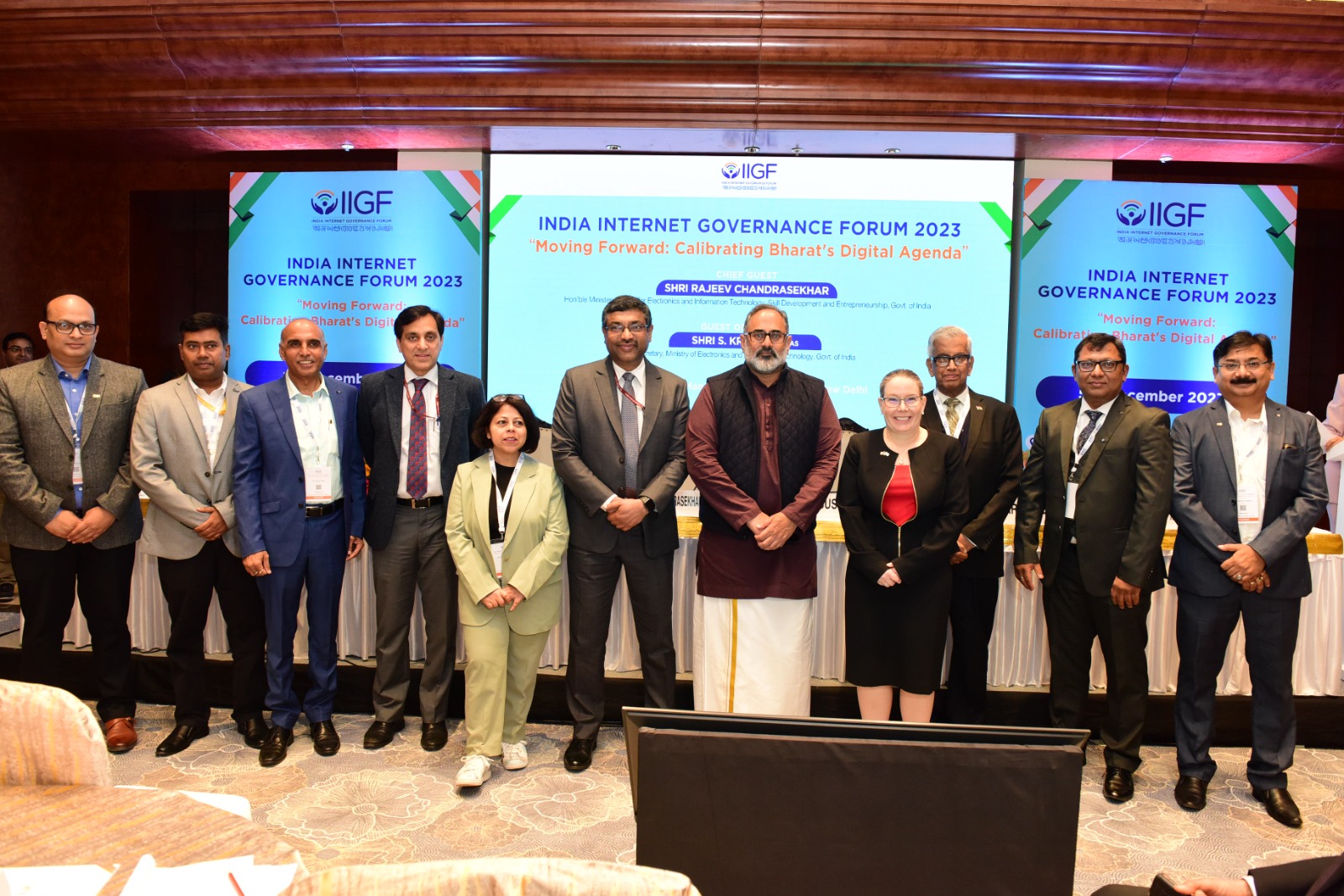
|
Getting your Trinity Audio player ready...
|
The India Internet Governance Forum (IIGF) 2023 convened experts, tech visionaries, and policymakers to deliberate on the nation’s digital future. Hosted by the Union Minister of State for Electronics & Information Technology (MeitY) and Skill Development & Entrepreneurship, Shri Rajeev Chandrasekhar, this third edition navigated the theme “Moving forward: Calibrating Bharat’s Digital Agenda”.

IIGF, affiliated with the UN-IGF, serves as a crucial platform for stakeholders to deliberate on public policy issues related to the Internet, fostering collaboration and strategic initiatives for India’s digital evolution. It convenes a range of prominent experts who underscored the global importance of IIGF in shaping internet policies.
The IIGF harnesses extensive collaboration to fine-tune India’s digital strategy, placing a strong emphasis on inclusivity, security, and innovation. Its vision is centred on empowering a digitally enabled Bharat through these key pillars.
India’s approach to internet governance is characterised by inclusivity and collaboration, reflecting a commitment to ensuring a diverse representation of voices and perspectives. With specific attention to multistakeholderism, India actively engages diverse participants, including government bodies, industry leaders, civil society organisations, and academia, in discussions and policy formulations related to Internet governance.
Rajeev Chandrasekhar highlighted the maturation of inclusivity in India, acknowledging the representation of diverse voices shaping the Internet’s future. He believes collaboration is pivotal in crafting policies, regulations, and technological advancements. Chandrasekhar highlighted India’s stride as the world’s largest connected democracy, recognising its burgeoning digital landscape.
“Multistakeholderism in India will be the cornerstone of how the future of the Internet will be shaped in policy, regulation and technology landscape,” Minister Rajeev Chandrasekhar was quoted as saying.
Underscoring the role of technology in inclusion and empowerment, the Minister highlighted the impact of emerging technologies and AI in fostering innovation and enabling young Indians to participate in the innovation economy. However, he stressed the need for a safe and accountable Internet, ensuring consumer safety and holding platforms liable under Indian law.
Secretary MeitY, S Krishnan, echoed the forum’s significance in steering India’s digital trajectory. Stressing multistakeholderism’s importance, he advocated collective efforts to tackle internet complexities. Krishnan spotlighted initiatives like Internationalised Domain Names (IDNs) to promote a multilingual internet and bridge digital divides, envisioning IIGF 2023 as a catalyst for India’s digitally empowered future.
Joint Secretary MeitY, Shri Sushil Pal, underscored the necessity of a secure, accessible internet while cautioning against emerging technologies’ potential to deepen vulnerabilities. Pal underscored the timeliness of the IIGF theme in conceptualising Digital India’s intricacies, calling for profound engagement among stakeholders.
Ms Sally Costerton, Interim President & CEO, ICANN, acknowledges India’s pivotal role in internet governance, advocating collaboration to reduce the digital divide and foster inclusion.
With a focus on accessibility, safety, and innovation, India’s efforts aim to bridge digital divides, foster inclusion through initiatives like multilingual internet access, and address emerging challenges collaboratively. This inclusive and collaborative approach underscores India’s commitment to shaping a digital landscape that benefits all its citizens while contributing positively to the global internet governance discourse.
Keeping with this policy of engaging with citizens, the Telecom Regulatory Authority of India (TRAI) recently unveiled the Consultation Paper on ‘Regulation on Rating Framework for Digital Connectivity in Buildings or Area’, calling upon stakeholders for input.
Originally set for submission by 08 December 2023, TRAI has responded to stakeholder requests for an extension. The submission deadline has been extended by four weeks, now closing on 05th January 2024, with counter comments due by 19 January 2024. This extension aligns with India’s ongoing efforts, as discussed in the India Internet Governance Forum, to foster inclusive and collaborative dialogue in shaping the nation’s digital trajectory.
















